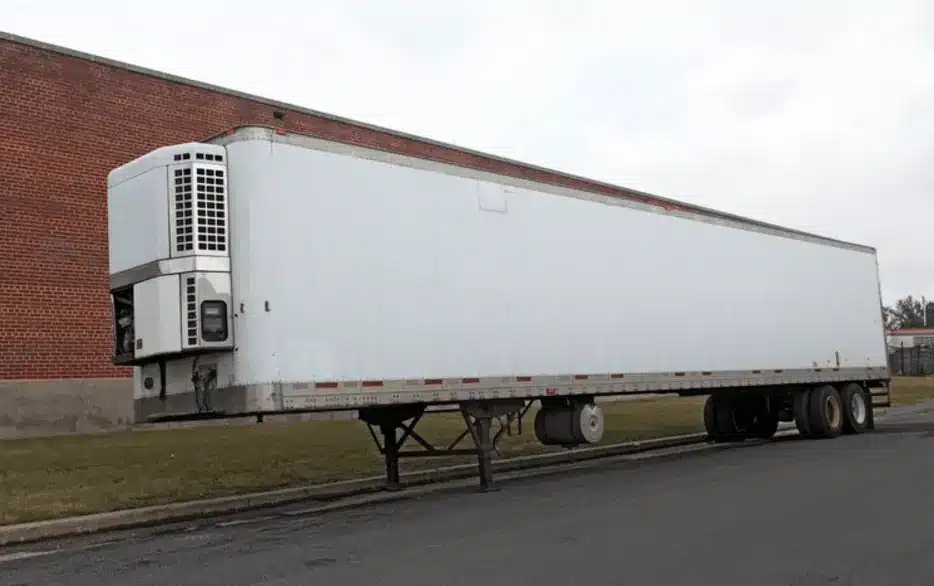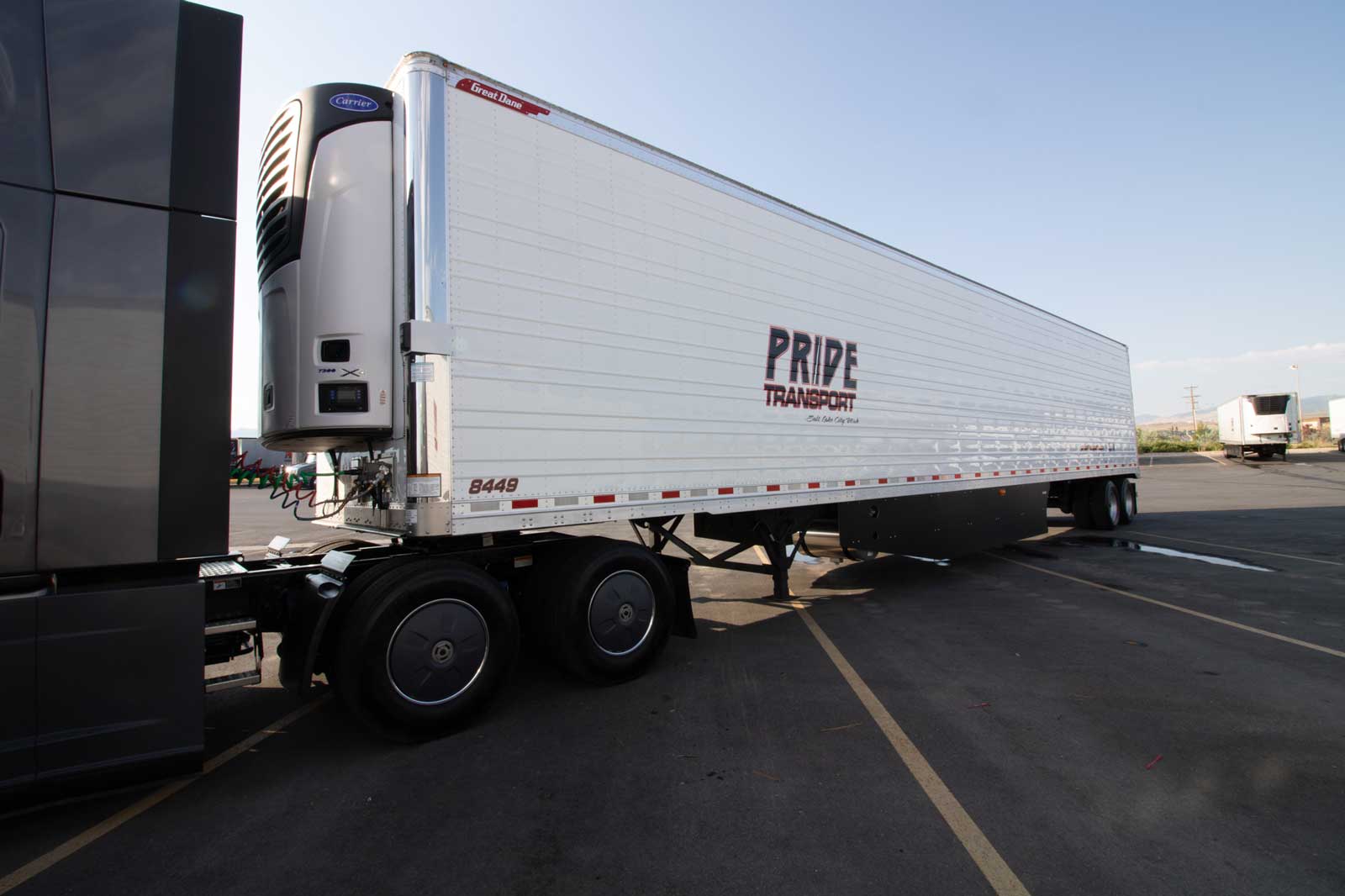Refrigerated Transportation Thermo King: The Ultimate Option
Wiki Article
Top Advancements in Transportation Refrigeration: Enhancing Effectiveness and Safety
The landscape of transportation refrigeration is undertaking significant makeover, driven by innovations aimed at improving both performance and safety. As these advancements proceed to evolve, it is necessary to explore their effects on functional practices and regulative conformity, prompting a closer evaluation of exactly how they reshape the future of transportation refrigeration.Smart Temperature Checking Systems
In the world of transport refrigeration, wise temperature level surveillance systems have actually become an important development for making certain the integrity of temperature-sensitive goods. These sophisticated systems leverage Web of Points (IoT) technology to offer real-time data on temperature level variations, allowing drivers to preserve ideal conditions throughout the supply chain. By continually tracking the temperature of refrigerated containers and vehicles, companies can swiftly recognize deviations that might endanger product top quality.
Moreover, wise surveillance systems usually integrate automated informs and notifications, enabling stakeholders to react immediately to any kind of prospective concerns. This proactive approach not just decreases the danger of perishing but likewise boosts compliance with governing criteria controling food safety and pharmaceutical transport.
The combination of information analytics within these systems additionally helps with anticipating upkeep, assisting drivers to anticipate possible devices failings prior to they occur. This capacity lowers downtime and enhances functional effectiveness, inevitably leading to set you back savings.
Eco-Friendly Refrigerants
Smart temperature level tracking systems play an essential duty in keeping item top quality, yet the performance of transport refrigeration also depends upon the choice of cooling agents used. As ecological issues climb, the change in the direction of eco-friendly cooling agents has become imperative. Standard refrigerants, such as hydrofluorocarbons (HFCs), are well-known for their high International Warming Possible (GWP), contributing dramatically to climate adjustment. In contrast, arising alternatives like hydrocarbon-based cooling agents and hydrofluoroolefins (HFOs) present lower GWP options, offering both performance and sustainability.
These environmentally friendly refrigerants not just decrease environmental influence but also align with worldwide policies intended at terminating harmful materials. Their fostering can cause boosted energy effectiveness, eventually lowering operating expense for transportation refrigeration systems. In addition, making use of natural cooling agents, such as ammonia and co2, has actually gotten grip due to their outstanding thermodynamic properties and reduced ecological impact.
Purchasing green cooling agents is not simply a governing conformity procedure; it represents a strategic choice that improves brand name track record and fosters customer commitment. refrigerated transportation thermo king. By prioritizing sustainable practices, firms can add to a greener future while ensuring the honesty of carried products
Advanced Insulation Materials
Making use of advanced insulation products is important for optimizing transportation refrigeration systems, as they substantially boost power performance and preserve constant temperature control. Typical insulation methods commonly fall short in protecting against thermal transfer, resulting in boosted power consumption and rising and fall temperature levels within refrigerated areas.Emerging products such as vacuum protected panels (VIPs) and aerogels use navigate here remarkable thermal resistance, allowing for thinner accounts without endangering efficiency. VIPs, as an example, make use of a vacuum cleaner layer to decrease convective and conductive warm transfer, making them perfect for space-constrained applications. Aerogels, understood for their permeable and lightweight framework, give exceptional insulation while dramatically lowering overall system weight.
In addition, integrating stage adjustment materials (PCMs) into insulation systems can better stabilize temperatures throughout transportation. These materials take in and launch thermal power, successfully buffering against exterior temperature variations.
The combination of these innovative insulation materials not only reduces the operational expenses connected with energy consumption yet also expands the service life of temperature-sensitive goods. As the transportation refrigeration industry proceeds to advance, the adoption of cutting-edge insulation technologies will certainly be critical in boosting both performance and security in cooled transportation.
Automated Route Optimization
The efficiency of transport refrigeration systems is substantially boosted with automated path optimization, which leverages her latest blog advanced algorithms and real-time information to figure out the most effective courses for distribution. By examining various elements such as web traffic patterns, climate condition, and delivery windows, these systems can significantly decrease traveling time and fuel intake.Automated path optimization reduces human mistake and subjective decision-making, which can bring about inefficiencies. This innovation enables fleet supervisors to allocate resources a lot more efficiently, guaranteeing that chilled products keep their needed temperature throughout the journey. By maximizing routes, firms can additionally boost customer complete satisfaction through timely deliveries.
In addition, automated systems can adapt to unforeseen scenarios, such as roadway closures or abrupt traffic spikes, permitting dynamic rerouting. This versatility not only protects the integrity of temperature-sensitive products however also adds to overall operational performance.
Executing automated course optimization can result in substantial price savings while lowering the carbon footprint connected with transportation. As services increasingly focus on sustainability, this advancement stands out as a vital element in contemporary transportation refrigeration, straightening functional objectives with ecological responsibility. Inevitably, automated course optimization stands for a substantial advancement in the quest for effectiveness and safety in transport refrigeration.

Real-Time Information Analytics
Automated route optimization significantly benefits from the integration of real-time information analytics, which offers vital insights right into the performance of transportation refrigeration systems. By making use of real-time data, transport drivers can monitor temperature fluctuations and tools efficiency, ensuring that disposable goods are kept within required specifications throughout transit. This proactive technique not just enhances the high quality of the moved products yet also alleviates the risk of putridity and loss.
Along with enhancing effectiveness, real-time analytics improves security by making sure compliance with regulative requirements for temperature level control. This not only shields public health and wellness but additionally strengthens a business's reputation - thermo king transport refrigeration. As the transportation refrigeration sector progresses, the integration of real-time data analytics becomes a keystone for driving technology, sustainability, and functional quality
Conclusion
In conclusion, the developments in transportation refrigeration dramatically improve both performance and safety and security within the sector. Collectively, these advancements represent a crucial advancement in transportation refrigeration, ensuring conformity with governing standards and promoting a greener future.The landscape of transportation refrigeration is undertaking considerable transformation, driven by innovations intended at boosting both efficiency and safety.Smart temperature level tracking systems play an important function in preserving item top quality, however the effectiveness of transport refrigeration likewise hinges on the choice of refrigerants made click for more use of. Their adoption can lead to improved power effectiveness, inevitably minimizing operating prices for transport refrigeration systems. Inevitably, automated course optimization stands for a significant development in the mission for efficiency and security in transportation refrigeration.
In final thought, the innovations in transportation refrigeration significantly enhance both effectiveness and security within the sector.
Report this wiki page